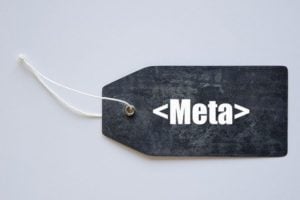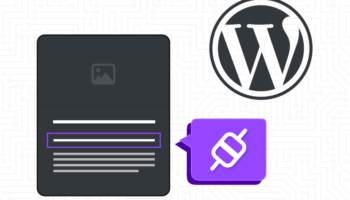 You’ve probably heard the term Meta tags tossed around, but unless you work in the web development or online marketing industry you probably don’t know exactly what they are. Meta tags simply help provide extra information about your website to search engines but do not affect the site’s appearance. Search engine crawlers look for these tags in the <head> section of the HTML document to gather several pieces of information, like a brief summary of the web page, any restrictions to what they should crawl, the page title and more. Here are four major tags you’ll see in almost every website.
You’ve probably heard the term Meta tags tossed around, but unless you work in the web development or online marketing industry you probably don’t know exactly what they are. Meta tags simply help provide extra information about your website to search engines but do not affect the site’s appearance. Search engine crawlers look for these tags in the <head> section of the HTML document to gather several pieces of information, like a brief summary of the web page, any restrictions to what they should crawl, the page title and more. Here are four major tags you’ll see in almost every website.
Title Tag
While technically a page element not a meta tag, the “Title Tag” is one of the most important tags on a page and is required for all HTML documents. This tag not only defines the title of the page but is also very important for SEO because it appears prominently in most SERPs results. This tag can also be seen at the top of the browser and in the browser’s tab.
A strong title tag accurately describes the page, includes your key terms while avoiding keyword stuffing, and falls between the 50-60 character limit as displayed in the search engine results page.
A title tag looks like this:
<title>This is a title tag</title>
Meta Description
The meta description gives a short description of what the web page is about. Although this element is not really a key factor in search engine rankings, it can improve click-through rates since it is often what search engines display in their results.
For this reason, it can be helpful to have an accurate description of your web page including some key terms that users will be searching for. The optimal length for the meta description is around 160 characters and if no description is provided then the search engine uses the copy on the web page.
A meta description tag looks like this:
<meta name=”description” content=”This is a Meta Description tag.”/>
Meta Robots
A meta robots tag tells search engine crawlers how to behave on your web page. The main behaviors are to index the site, not index the site, follow the links on the page, or not to follow the links on the page. By default, if no robot tag is provided, the crawlers will index and follow all the links on the page.
Why wouldn’t you want the page to be indexed? Perhaps the page is private or has personal information you don’t want to be public, or perhaps the page is not quite finished. A common reason you wouldn’t want a crawler to follow your links is if your page has a lot of outgoing links, such as a comments section, where you don’t want search engines to see the links as an endorsement from your website.
A meta robots tag looks like this:
<meta name=”robots” content=”noindex” />
Meta Keywords
No Longer Recommended
Also found in the head of your document, the meta keywords tag used to be a powerful SEO element, but has since been retired due to the abuse it got from marketers using keyword stuffing. Not only that, but meta keyword tags can reveal your marketing strategy to competitors and are seen as spam by most search engines.
A word of caution — avoid this tag as it provides no benefit to search engine results and in some cases can even cause you to be penalized with search engines like Bing.
Meta keyword tags look like this:
<meta name=”keywords” content=”SEO, Meta Tags, Keyword Tag”>






